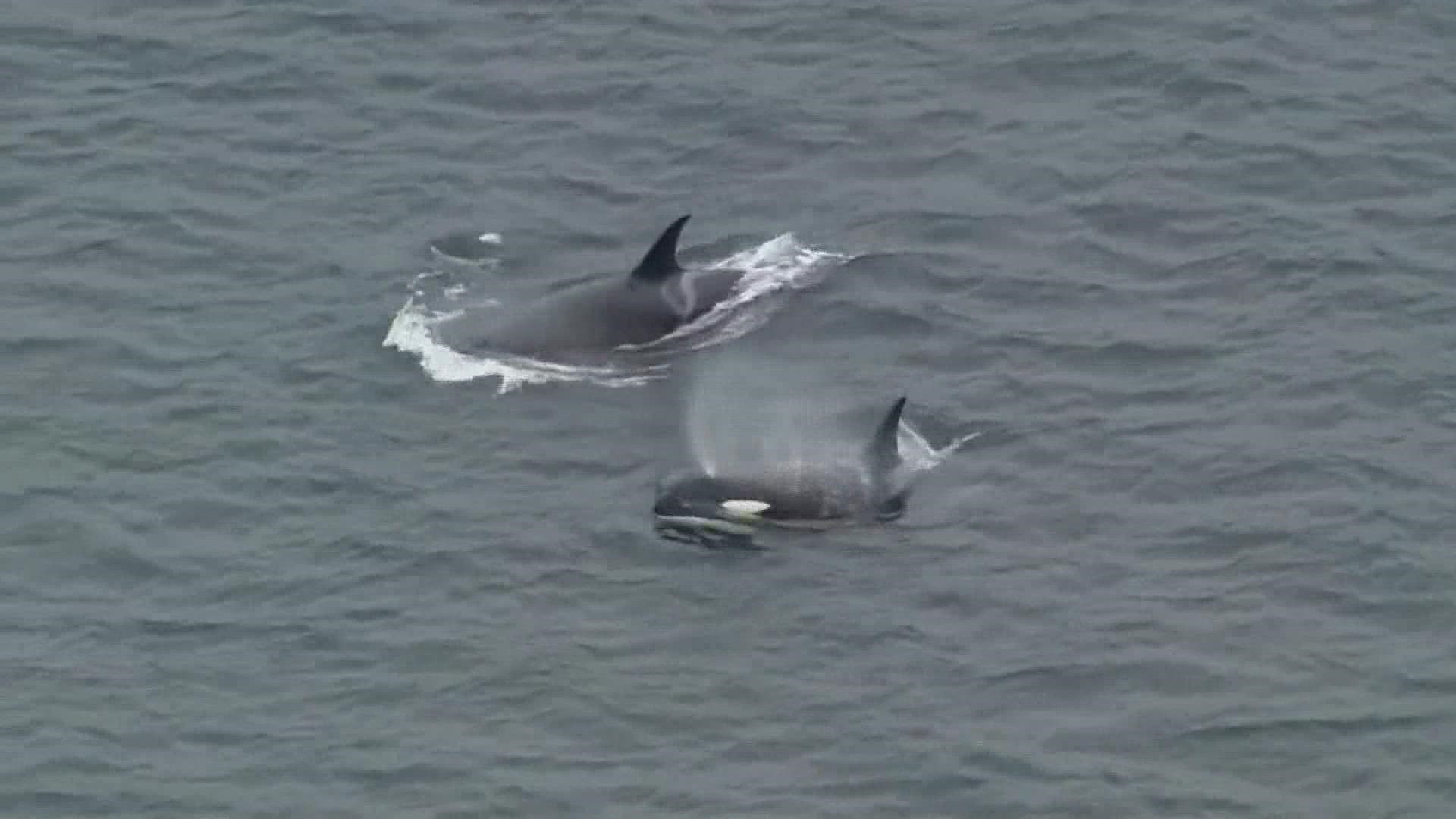SEATTLE — Some commercial vessels will soon take part in a voluntary "trial slowdown” under the umbrella of Quiet Sound, a program working to better understand and mitigate the impacts of shipping on Southern Resident killer whales.
“The Southern Residents are fish eaters which means they use echolocation to find their food,” Program Manager Rachel Aronson said. “So they need noise frequency bands that are clear and open to find food, to communicate with their families, and to know where they are in their habitat, so we're hoping to give them some quiet space to thrive.”
Quiet Sound is coordinated by Maritime Blue, an organization working to increase equity and sustainability within the maritime industry. It says fleets with high rates of participation are "eligible for documentation to meet a criterion in the Underwater Noise performance indicator for their Green Marine certification." On top of that, many local shippers also care for the whales and are willing to lose a little time to protect them.
“Commercial shippers have been at the table from the beginning as part of Quiet Sound so we can put forward programs they can easily and safely participate in,” Aronson said.
Maersk, one participating partner, says it has already participated in a similar program in British Columbia called ECHO, and is happy to continue the process in western Washington. That program found that slowdowns significantly reduced underwater noise.
The voluntary slowdown runs from October 24 to December 22, the season when Southern Resident orcas tend to forage in the target area. It asks commercial vessels such as cargo ships, container ships, bulkers and tankers to slow down to 14.5 or 11 knots speed through water from the Admiralty Inlet to North Puget Sound, depending on the type of ship they are. Aronson says that means a slowdown of about 30-50% from the usual speeds for most ships.
“We know within that area there's very good foraging habitat for the Southern Resident Killer Whales, so we're hoping this lays out a quiet welcome mat into the (Puget Sound) for the whales,” Aronson said.
Aronson says the public can help by reporting whales to the Orca Network, Whale Alert or other services.
"We've set up partnerships when the public reports a whale, mariners get real-time reports a whale is nearby so they can avoid the whale and/or slow down," Aronson said.
To learn more, check out Quiet Sound's website.

